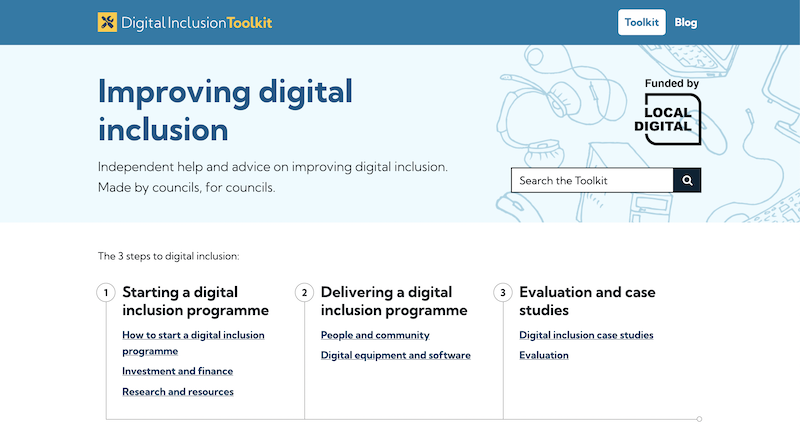The project kicked off their latest phase of work on Thursday 7 April.
The team published a blog post on the Digital Inclusion Toolkit website to celebrate their successful continuous funding bid, and to let people know their plans for this phase of work.
Croydon Council and Age UK will no longer be partners, but Birmingham City Council, Dorset Council, Greater Manchester Combined Authority and Norwich City Council are now on board with hopefully more councils to follow!
The team held their first meeting with the new councils to run through the objectives of this phase and discuss ways of working together.
The team have also created a new survey that will focus on local authorities, and includes questions to help them gather time- and money-saving metrics.
Meanwhile, the User Research team have completed their first interview and have more booked in.
The team held a session to go through any outstanding development work — including adding new functionality for blogs — and a separate session to discuss project comms with their comms leads. The @diginclusionkit Twitter page will now be more active and the comms leads are also setting up a page on LinkedIn. The team is planning to post more news and updates from the wider digital inclusion world, rather than just updates about new Toolkit articles and content.
Members of the team at Leeds attended a session to generate content for articles on engaging the third sector, and finding and securing funding. They will use what came out of the session to come up with first drafts of new articles.
The team is also busy planning for their first Roundtable discussion. The discussions will enable them to get input from other councils on different digital inclusion topics, which will help them shape the Digital Inclusion website and its content.

 UK Ministry of Housing, Communities and Local Government (MHCLG)
UK Ministry of Housing, Communities and Local Government (MHCLG) 